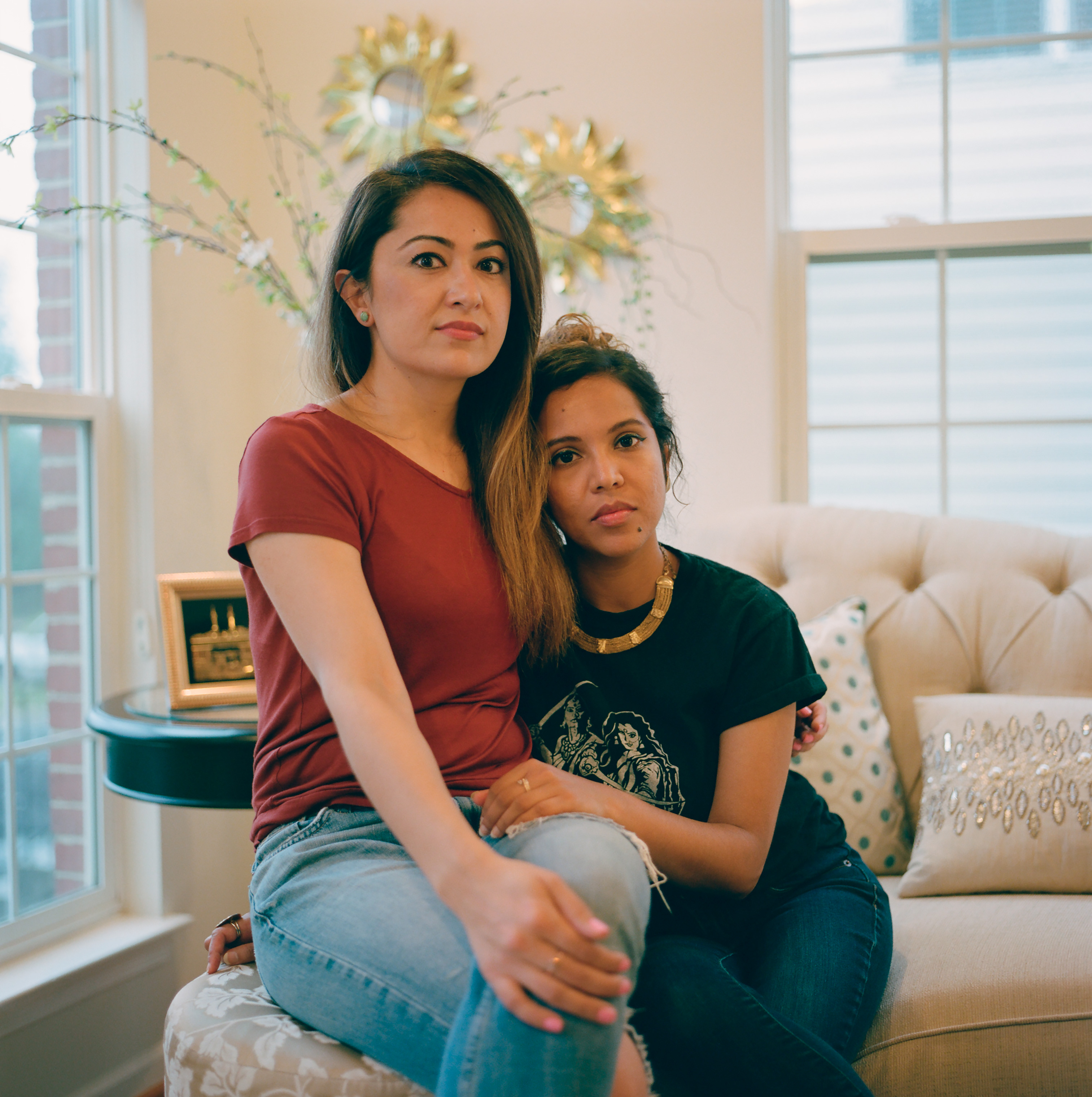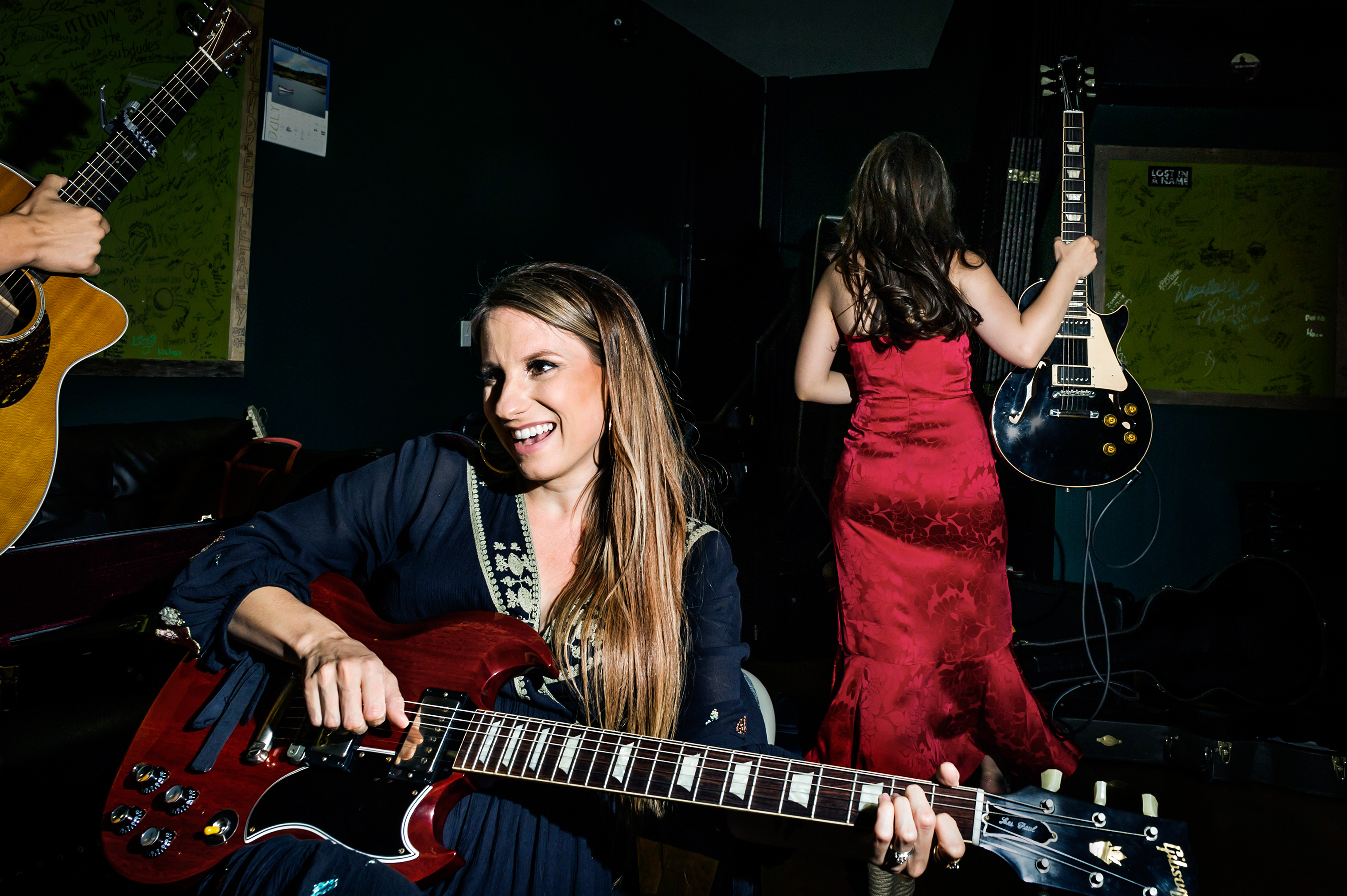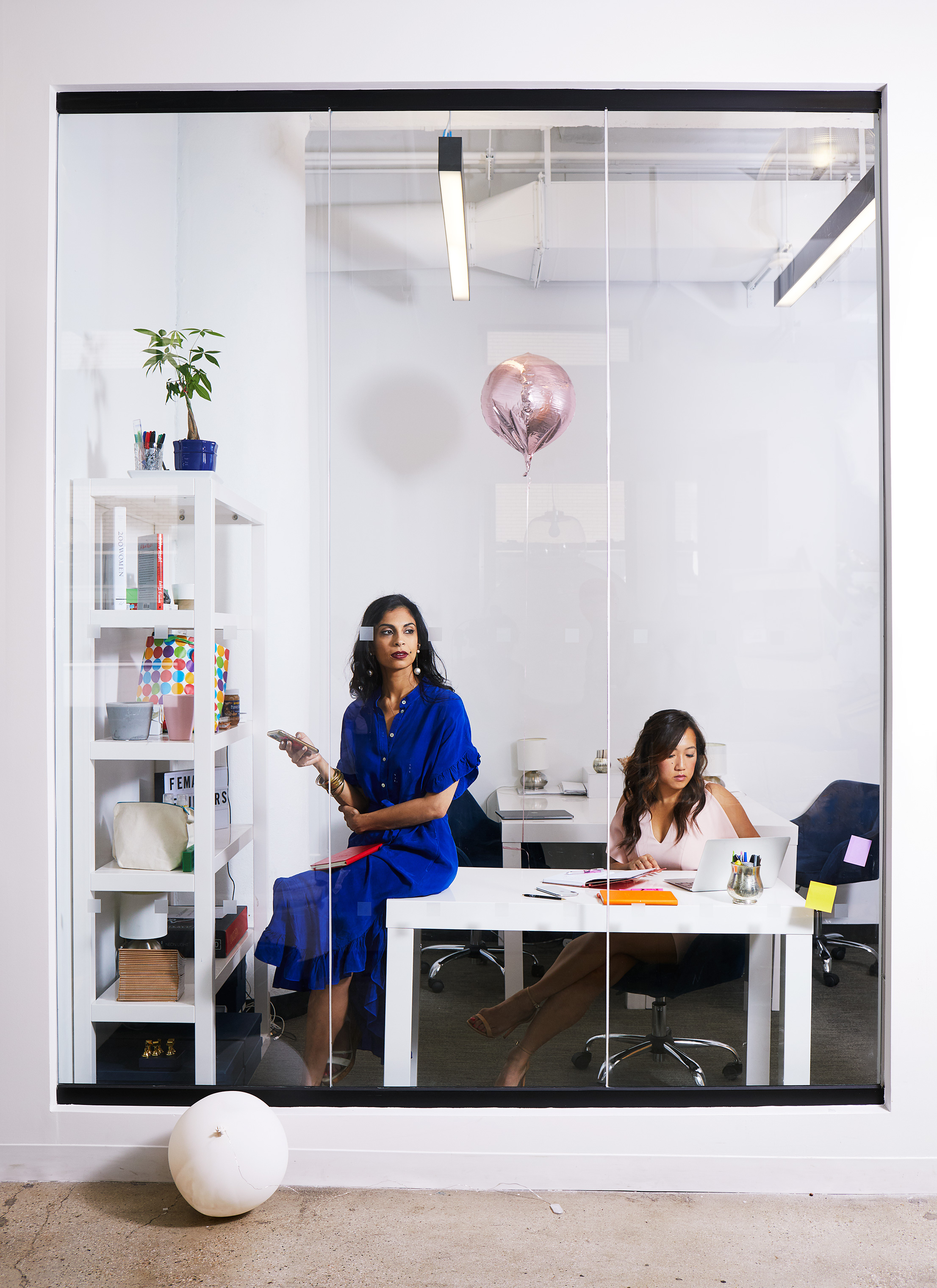After a home-cooked lunch of spicy chaat and chai this July, four friends gathered on a living-room floor in Ashburn, Va., to discuss faith and inner strength as part of their monthly halaqa, an Islamic study group. “We live in a time where you can’t really separate yourself from feeling that weight and responsibility to be an advocate for your community,” says Nafisa Isa, the host. Isa, like her friends, has faced prejudice and aggression as a South Asian Muslim-American woman. In 2018, she worries.
We met Isa and her friends as part of the multimedia project Women Across America: A TIME Road Trip, where we traveled to seven cities over the summer to speak with women who have formed social groups and businesses in response to a range of different pressures. Finding strength in shared passions, struggles and goals, these women have formed new communities.
The worries Isa and her halaqa shared during our visit to Ashburn align with a finding in our national poll, conducted with SSRS and Ford: the top concern for adult women across the U.S. right now is taking care of their families, and their families’ safety.

The poll likewise found that American women feel significant pressure, increasing with age, to take care of those around them at home and at work (45% said so). That expectation, along with the pressure to look attractive (felt by 42%), which generally decreases with age, ranked higher than the pressure to prove their intelligence (34%) or excel at work (21%).
In Nashville, where singer-songwriters Caitlyn Smith, Heather Morgan and Maggie Chapman founded a concert series to showcase women in a city and industry that have long favored men, the women say all of the above apply. “I worry a lot about being a good mother,” says Smith, who is expecting her second child this fall. “I worry a little about keeping the ball rolling and keeping relevant … Although I try and ignore it as much as I can, there’s always a pressure of how I need to appear.” Smith, Morgan and Chapman lean on one another and their fellow artists to keep going. Between sets at their concerts, they see women forge friendships and even find new partners and gigs backstage. “It’s fun to kind of show off our friends, too, and be like, ‘Oh, you think you’ve seen it all? Get ready,” Morgan says.

While data suggest that women put family and personal lives before work and career advancement, 66% said they think their daughters or friends’ daughters will have more professional opportunities as adults than they did. In New York, TIME met two women working to advance that hope: Anu Duggal and Sutian Dong, partners behind the Female Founders Fund, a venture-capital firm that funds new tech-related companies created by women. They’re part of a movement to reimagine an industry that offered only 2% of VC dollars to women entrepreneurs last year. Duggal and Dong mentor the women leading companies in their portfolio, aiming to ensure their success at every step. “There’s a unique set of challenges that a female founder has, so it’s important to have this network,” says Natalie Mackey, CEO of Winky Lux, a beauty company funded by F3. Women are somewhat more likely to have female mentors than male mentors — our poll found that 29% of women have mostly female mentors in their industries/workplaces, whereas 11% have mostly male mentors (28% said it’s about even). “It doesn’t surprise me that the first group to write a substantial check was a group that focused on female-led businesses,” Mackey says.
Like all the women we met on our cross-country journey, Dong and Duggal looked around and didn’t see what they needed — so they built it themselves.

MORE FINDINGS FROM OUR POLL
LEADERSHIP | A little more than half of women — 54% — said they see themselves as leaders, but this perception trended downward with age. Women between 18 and 29 years old were significantly more likely to consider themselves leaders than women who are 65 years old and above.
FUTURE GOALS | The top thing women said they have always wanted to do but haven’t yet was travel (40%). Next was learning a new hobby (29%) and third was changing careers or starting their own business (20%).
COMMUTING | Among women who are employed, 71% said they get to work by driving. The next most popular response was that they work from home (8%), then take public transportation and walk (both 7%).
TECHNOLOGY | Sixty-five percent of women said technology keeps them informed and 62% said it helps them stay in touch with friends and work connections, while 25% said it’s a distraction and 12% said it makes life more complicated.
FEMINISM | Forty-seven percent of women identified as feminists, and of those who did, 12% said they are strong feminists.
NATIONAL ISSUES | Given a list of 21 choices, the national issue that the most women ranked as important to them was affordable healthcare (47% of women said so). Next was gun control, at 26% and crime at 24%.
ELECTION | Nearly three-quarters of women (71%) said they plan to vote in the midterm elections this November.

- Why Trump’s Message Worked on Latino Men
- What Trump’s Win Could Mean for Housing
- The 100 Must-Read Books of 2024
- Sleep Doctors Share the 1 Tip That’s Changed Their Lives
- Column: Let’s Bring Back Romance
- What It’s Like to Have Long COVID As a Kid
- FX’s Say Nothing Is the Must-Watch Political Thriller of 2024
- Merle Bombardieri Is Helping People Make the Baby Decision